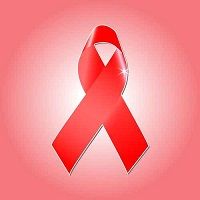Article
Talking to Prostitutes: CALPEP's HIV Program
Author(s):
For 30 years, an outreach group in Oakland, CA has been winning the confidence of prostitutes as the first step in helping them be healthy and HIV-free. California Prostitutes Education Project representatives offered tips in a workshop.

Thousands of advocacy and social service groups offered workshops at the 20th Annual United States Conference on AIDS, but probably few have as much street credibility as the California Prostitutes Education Project (CALPEP), a 30-year-old service organization in Oakland, CA.
CALPEP has many governmental, individual, local, and corporate sponsors. Its services include mobile HIV testing, medical transportation, case management, and street outreach. It goals is the stop the HIV/AIDS epidemic in the black community.
In a session today at the Hollywood, FL meeting, executive director Gloria Lockett and colleagues offered other outreach counselors practical tips on how to help the teens and women who work as prostitutes.
These are not the high-priced escorts who work for elite services, but girls and women who turn to the sex trade because of poverty, drug use, mental illness, family dysfunction, or just youthful bad judgment.
The organization exists to keep these women as safe and healthy as possible--including keeping them from getting infected with HIV, said Lockett.
Many the audience said they work in AIDS outreach programs and were eager to learn ways to get these women into treatment.
Among the tips offered: meet these women and their pimps where they work, hire peer counselors to approach them hand out condoms, and offer them cash ($10 is a good amount because it can be useful without being so much money it will go to buying drugs.)
Stocking their centers with condoms in a variety of sizes, colors, and flavors is also helpful in opening a dialog that can lead to trust, she said.
Be sensitive about approaching a prostitute when she is clearly trying to conduct business with a potential customer.
“Leave them alone when you’ve a situation with a car door open,” Lockett advised.
She said she had given up on giving the prostitutes gift cards after learning that they would just sell them.
Getting women and their male handlers in for HIV tests is a major goal of CALPEP, to be followed by treatment if needed. They do that by holding events that feature free food, music, and non-judgmental counseling and conversation.
“We treat them with respect,” she said.
But Lockett was less optimistic about the feasibility of pre-exposure prophylaxis (PrEP) for women who spend their days on the street.
Their lives can be too chaotic to take a daily pill like tenofovir (Truvada/Gilead) she said.
“PrEP is a tool but not an all-in-all,” she said, “Every day is a lot.”
In a question and answer session, an HIV outreach worker who said he is from Rochester, NY said there are other problems in getting certain groups to embrace PrEP, such as motorcycle gang members.
The stigma that these bikers attach to HIV makes them unwilling to use PrEP even though they are high risk because they tend to have multiple sex partners.
He said he annually attends a major national annual biker gathering in Sturgis, SD but has had no success talking to attendees about PrEP, and added that he believes military veterans feel the same way.
If pharma develops a long-acting PrEP injection that might be different, he said.
Others in the audience said their challenges are even more basic and frustrating in that they work in regions that have no clinics for treating or diagnosing HIV or other sexually transmitted infections, and little funding to do field work.




